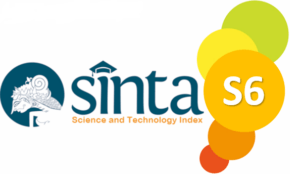PERAN ORANG TUA (PENGASUH) DAN GURU DALAM MENJAGA KESEHATAN REPRODUKSI ANAK AUTIS DI SEKOLAH LUAR BIASA NEGERI (SLBN) KAB. KAMPAR BANGKINANG
Kata Kunci:
Anak Autis, Kesehatan Reproduksi, Peran Orang Tua Dan GuruAbstrak
Kesehatan reproduksi adalah aspek penting dalam perkembangan anak, termasuk anak-anak autisme yang butuh pendekatan khusus. Penelitian ini bertujuan menggali peran orang tua, guru, kepala sekolah, dan terapis di SLBN Kabupaten Kampar Bangkinang dalam mendukung pemahaman kesehatan reproduksi bagi anak autis. Dengan pendekatan kualitatif deskriptif-eksploratif, data dikumpulkan melalui wawancara mendalam dan observasi. Hasil penelitian menunjukkan bahwa kolaborasi antara orang tua, guru, dan terapis sangat penting untuk mengenalkan bagian tubuh, konsep privasi, menjaga kebersihan diri, serta melindungi anak dari risiko terkait kesehatan reproduksi. Metode pengajaran disesuaikan kebutuhan anak, seperti lewat bermain, boneka, dan rutinitas harian. Tantangannya ada pada keterbatasan pemahaman anak dan kurangnya pengetahuan orang tua soal kesehatan reproduksi. Karena itu, diperlukan pendidikan berkelanjutan, peningkatan kapasitas orang tua dan guru, serta dukungan sekolah agar informasi ini bisa diterima anak berkebutuhan khusus dengan baik.
Reproductive health is a crucial aspect of child development, including for children with autism who require specific approaches to understand it. This study aims to explore the roles of parents, teachers, school principals, and therapists at the Special Needs School (SLBN) in Kampar Regency, Bangkinang, in supporting children with autism in understanding reproductive health. Using a qualitative descriptive-explorative approach, data were collected through in-depth interviews and observations. The results show that collaboration between parents, teachers, and therapists plays a key role in introducing body parts, understanding the concept of privacy, maintaining personal hygiene, and protecting children from risks related to reproductive health. Teaching methods are adapted to the children’s needs, such as through play, the use of dolls, and daily routines. Challenges include the children’s limited understanding and parents’ lack of knowledge about reproductive health. Therefore, ongoing education, capacity building for parents and teachers, and school support are essential to ensure that children with special needs can understand reproductive health information effectively.




